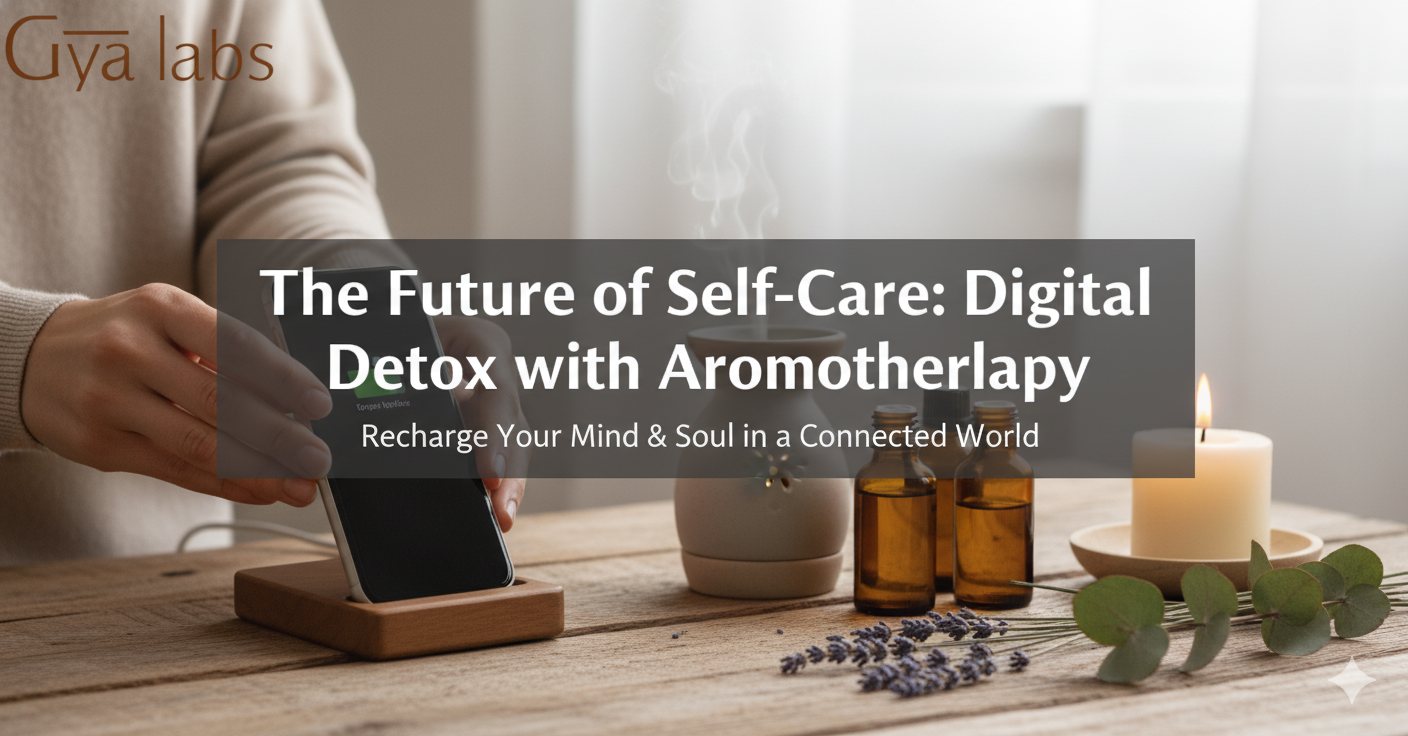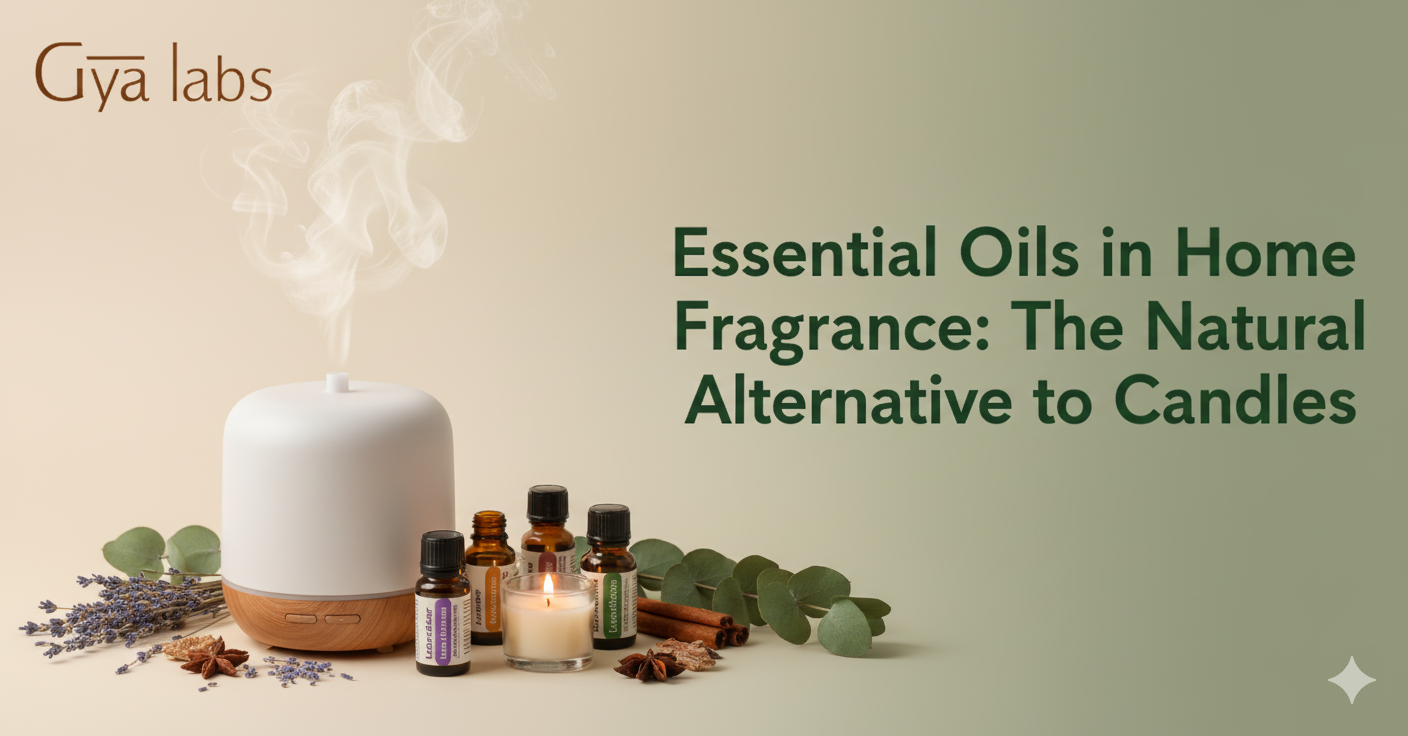Your self-care can smell good and do good.
This article explores sustainable aromatherapy practices for lifestyle and well being — no longer medical use. From the lavender fields on your diffuser, every drop of green beauty essential oils consists of nature’s essence. With greater insight about ecology's impact, a key query rises: Aromatherapy pleasure is possible by protecting our planet?
Aromatherapy sustainability is key — consciously feed senses while honoring global resources. An eco-aware novice or a dedicated oil user, this knowledge builds action by creating eco-friendly oils routine that truly aligns with modern and zero waste wellness values.
Why Sustainability Matters in Aromatherapy
The Environmental Footprint of Essential Oil Production
Natural and organic essential oils are concentrated plant essence — sometimes requiring tons of plants for a tiny oil amount. Though natural, large-scale production can risk deforestation, farmland nutrient loss, and unsustainable resource use without responsible care. For instance, rose or sandalwood oil recovery takes a long time.
That's why green beauty essential oils matter. Brands that use ethically sourcing oils and regenerative agriculture in aromatherapy ensure that each purchase aids nature rather than exhausting it.
Conscious Consumption Protects Nature’s Resources
Mindful aromatherapy means understanding that less is more. Using a minimum amount, you save oils, save earth. Intentional self-nurture is not just zero waste wellness — it’s about doing better, too.
Sustainable Living Idea: Lesser diffuser output requires fewer drops of oil to fill a room with scent.
The Link Between Mindful Self-Care and Eco-Wellness
Sustainability and wellness or environmental responsibility in beauty share the same roots — balance. When you choose products that honor nature, your routine becomes an act of gratitude. Green beauty essential oils inform how sensory link to earth.
Eco-Friendly Aromatherapy at Home
Your eco-home haven doesn’t ditch your favorite scents. It simply means applying aroma mindfully.
Use Smaller Amounts
Eco-friendly essential oils pack power — minimal amount needed. Diluting oils safely in carriers also extends use and minimizes waste.
Reuse Diffuser Water (Safely)
If your diffuser water still smells pleasant, reuse it to wipe counters or mop floors, provided no pets are exposed. Always research oil safety before reusing water for cleaning.
Store Oils Properly
Store oils cool, dark and avoid frequent repurchase.
Select Reusable Bottles
Containers with specific lids are good for recycling/reuse. You can also reuse old bottles for homemade cleaner blends.
Use oils responsibly, moderately.
Choosing Ethical Sourcing Essential Oils
Sustainability in aromatherapy industry begins long before a bottle reaches your shelf. It starts with sourcing, farming, and fair trade.
Look for Transparency and Purity
Brands that share where and how their oils are sourced demonstrate accountability. Transparency builds trust and ensures you’re supporting responsible ethical aromatherapy practices rooted in ethical sourcing oils values.
Support Ethical, Small-Batch Farms
Smaller growers farm sustainably that shield soil and nature. Seek fair trade or choose organic producers.
Prefer Renewable Plant Sources
Quick-source plant oils — like lavender, citrus, eucalyptus, and peppermint — have a lower environmental impact.
Eco Packaging & Shipping
Firms increase funding in sustainable packaging and delivery. Gya Labs, for instance, sustainability in aromatherapy industry evolves constantly to integrate purity and earth.
Discover how Gya Labs ensures every drop is responsibly harvested:
Read more about our Sustainably Sourced Essential Oils.
Eco-Friendly Oil DIY
DIY blending is easiest to practice eco-friendly oils habits while minimizing package trash.
1. Waste-Free Cleaning Mix
Lemon, Tea Tree, Vinegar ; mix in a refillable glass bottle. This aroma cleaning spray is biodegradable and avoids plastic cleaners.
2. Jars Get New Life
Soy wax jar refill and a few drops of calming lavender or vanilla oil.
3. Eco Diffuser Blend
Mix Lavender Trio ; Geranium-Cedarwood-Lavender for a grounding botanical scent.
Always dilute and dispose of oils properly. Keep undiluted oils out of drains.
Eco Tip: Keep wax/paper/glass for innovative repurposing — New Uses: Plant, Store, Mist.
The Future of Sustainable Self-Care
As public insight, the future of aromatherapy moves to zero waste wellness.
Refill Stations and Reusable Packaging
Brands push refills or local recycle schemes to reduce bottle waste.
Biodegradable Diffuser Pods
The next generation of home wellness devices will feature plant-based diffuser pods and compostable filters — combining convenience with consciousness.
Regenerative Agriculture in Aromatherapy
Instead of simply “organic,” earth-healing farm practices heal ground and life while cultivating essential oil crops. This approach guarantees future stability for farmers and the planet alike.
Gya Labs’ Commitment
Gya Labs maintains to keep sourcing responsibly, committing to moral partners that appreciate earth and people. Each bottle suggests excessive purity, eco-focus and care — a balance of nature and nurture.
Eco Voices: Real Reflections from Our Community
“I love eco-conscious manufacturers” — Aarushi, Eco Wellness Enthusiast
“Refilling feels mindful when I understand it’s sustainable” — Neha, Home Aromatherapy User
“I repurpose old bottles/containers/jars for making my own household cleaning sprays!” — Simran, Conscious Consumer
These narratives show that eco-care: forever, joint.
Conclusion: Conscious Scents for a Greener Tomorrow
Sustainable aromatherapy isn’t about perfection — it’s about development. Every conscious desire you are making, from selecting Sustainably Sourced Essential Oils to reusing diffuser bottles, provides up to a more aware, low-waste wellness routines.
Results and alternatives range; usually comply with protection and environmental guidelines.
When well being meets consciousness, your self-care rituals come to be a shape of respect — in your frame, your mind, and the planet.















